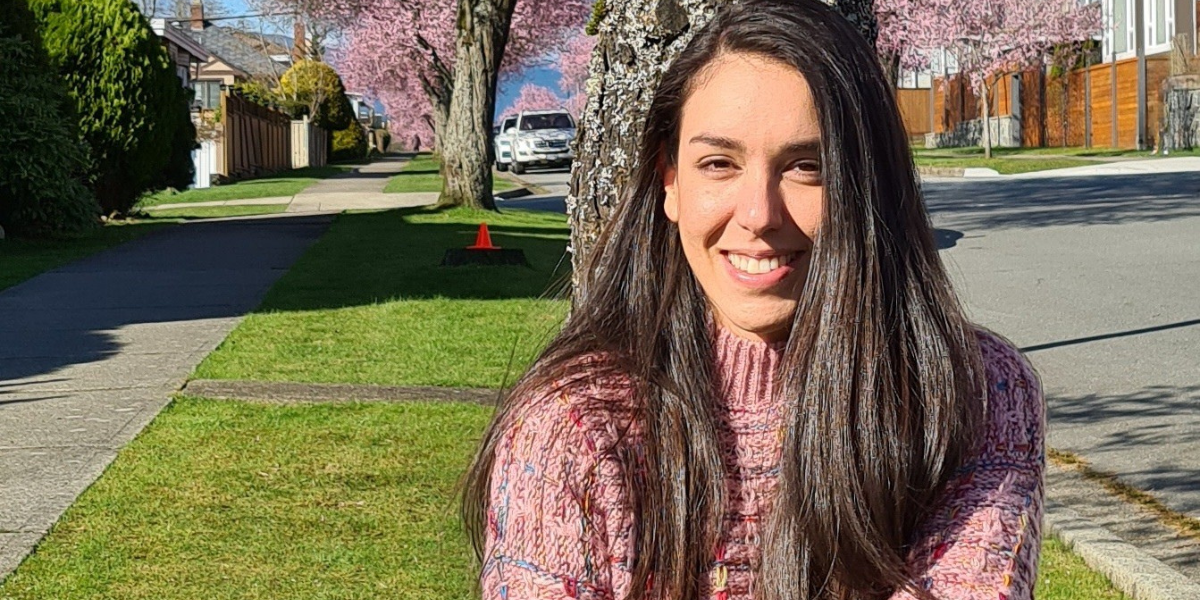
A message to our readers: the following article covers mental health, depression and anxiety.
Michelle’s story began in her early twenties. She was diagnosed with Depressive Disorder and Anxiety Disorder, and worked with a variety of mental healthcare practitioners.
At the same time, her career was thriving. She owned her own business as an interior designer. She describes being the type of person who would always try to take everything on, to be a Wonder Woman.
The thought of having a child peaked her anxiety. She was fearful that she would try to juggle too many things in motherhood. She was aware that she could be predisposed to experiencing postpartum depression. She was concerned with what the hormonal changes of pregnancy could mean for her mental health in general.
“My whole life I had this fear associated with having a kid. I had struggled with setting boundaries with my work, with putting my own needs first. I knew how low I could go. I was terrified of going there again, but this time exposing my child to that.”
When she brought this up with her family doctor, they said, “I’ll just refer you to the Reproductive Mental Health program at BC Women’s Hospital!” Michelle had no idea this option even existed until that very moment. She had assumed she needed to be pregnant before seeking out care specific to reproductive mental health.
She describes feeling like she was taken seriously for the first time when she met with psychiatrist, Dr. Karen Rivera. She describes genuinely believing that Dr. Rivera had a stake in her care. “When I felt proud of my progress, I could see that Dr. Rivera felt proud too. I looked forward to seeing her. I never felt embarrassed about my ‘setbacks,’ actually they weren’t even framed as ‘setbacks’ in the first place.”
Michelle had heard of other doctors saying, “just go off your meds!” But she knew that wasn’t always the healthiest choice for the full picture of the mother’s mental health. Dr. Rivera’s philosophy of being open, asking questions, and learning about the unique needs of each of her patients immediately put Michelle at ease.
“It wasn’t always easy, choosing to be so raw and vulnerable with Dr. Rivera. But I knew I had this opportunity that had been given to me. The stakes felt higher than they ever had before.”
This was a turning point in Michelle and her partner, Gabe in even considering having children as a possibility. They even attended some sessions together. For the first time, the mental healthcare she was accessing didn’t feel like a band aid fix. It felt sustainable.
One year later, Michelle’s son Hadley was born. She describes feeling the most stable she had felt in years, especially knowing the program was just a phone call away.
Michelle chooses to share her story knowing how many other women could be in a similar position. She’s even suggested referrals to her own friends.
“I can honestly say that I wouldn’t have my child if it wasn’t for the Reproductive Mental Health program. It’s made me a better mother than I would have been, but it’s also made me better for myself as an individual too. It’s difficult to grasp the magnitude of what financial contributions can do for so many women in this province. For me, it was literally the only way I could fathom embarking on this entire journey.”
STAY ENGAGED
- Donate today to ensure women’s reproductive mental health needs are met.
- Learn more about our Her Mind, Her Health campaign.
- Do you have a lived experience with reproductive mental health you’d like to share? Use your voice. By sharing your story, women across the province can relate, find solace, and muster the courage to share theirs too.
BC Women’s Health Foundation is BC’s largest non-profit organization dedicated to advancing the full spectrum of women’s health. The information shared is intended to educate, inform, and point readers to credible sources. It is not intended to substitute professional medical advice.
If you are struggling with your mental health, or concerned about someone else, call the BC Mental Health Support Line: 310-6789 (do not add 604, 778 or 250 before the number). It’s free and available 24 hours a day. If you prefer to access help and support via email, contact bcpartners@heretohelp.bc.ca.
-
-
Regina’s Endometriosis Journey
Endometriosis affects nearly 2 million women across Canada. For women struggling with this condition, their sy...
Read more -
Lauren’s Story
Through the loss of a pregnancy and the birth of a baby, the team at BC Women’s provided the emotional suppo...
Read more



